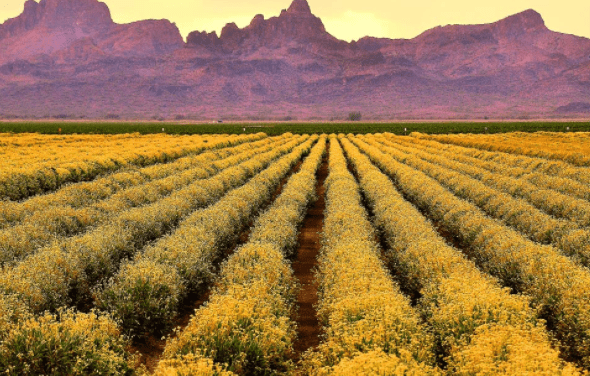Bridgestone, a Japanese multinational automobile and truck parts manufacturer, is investing in using guayule as a substitute for natural rubber in tire production.
The current problem? Natural rubber, extracted from the Para rubber tree, is a key component of all tires. But growing and cultivating rubber presents challenges. In particular, the supply of Para rubber trees is geographically concentrated, subject to disease and climate change, and labor-intensive to grow.
But there are alternatives on the horizon. Guayule shows great promise as a solution for diversifying the supply of natural rubber among different plant species and in various climates.
What is guayule? An evergreen shrub of the aster family. This highly drought-tolerant plant is native to the Chihuahuan Desert in northern Mexico and the southwestern United States.
Guayule accumulates rubber in the bark layer in response to cold stress, almost identically to natural rubber harvested from the rubber tree.
The company stresses that guayule does not compete with food crops and is suitable for mechanization.
Also, planting more guayule could expand green land that contributes to increased CO2 absorption.
Bridgestone
To put guayule to practical use, Bridgestone has been investing in a research and development effort to focus on guayule since 2012 and has accumulated technologies and knowledge related to agriculture, processing and use in tires, including the development of tires with 100% of their components containing natural rubber derived from guayule, and large-scale propagation through open innovation.
As a new initiative, in central Arizona, BSAM is expanding the number of local farmers it is working with to convert their farmland to guayule crops, which have served as an alternative to crops that previously failed due to increasing water scarcity.
By 2022, 200 acres of new guayule fields will be planted. This initiative is a direct result of BSAM’s agreement with the Environmental Defense Fund, an NGO that is actively involved in solutions to the shortage of Colorado River water used for irrigation in this area.
Bridgestone says it will continue to push forward with the goal of having guayule in practical use by 2026 and in large-scale production and commercialization by 2030.
![]()

